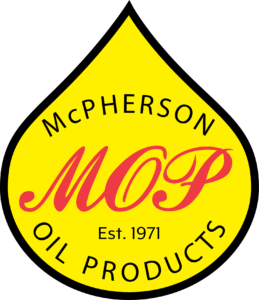Effective Equipment Lubrication To Reach Your Sustainability Goals
09 Dec 2019, Posted by in General Industrial behavior is changing. The industry is learning to implement sustainable strategies in order to meet social, economic and environmental challenges. Whichever industry you operate in, it’s likely that you’re introducing new technologies, implementing manufacturing process changes or changing the mindset of your employees to help meet your sustainability goals.
Industrial behavior is changing. The industry is learning to implement sustainable strategies in order to meet social, economic and environmental challenges. Whichever industry you operate in, it’s likely that you’re introducing new technologies, implementing manufacturing process changes or changing the mindset of your employees to help meet your sustainability goals.
Effective and efficient lubrication strategies can have tangible, sustainable benefits that can bring you closer to achieving these goals, whether they are related to safety, environmental care or productivity. This might mean rethinking lubricant selection, storage, and handling or even recognizing the importance of lubrication to your operations (it is, as we like to say, the lifeblood of your equipment!). Depending upon your operational conditions, the following benefits are all possible:
1. Increased Energy Efficiency – As energy costs continue to rise, learning how to use energy more efficiently is becoming a real challenge for the industry. Whether the goal is to decrease the overall energy usage on-site or to produce more output from the current energy employed, lubricants with energy efficiency benefits can help. For example, Mobil SHC™ lubricants have shown up to 3.6 % energy efficiency increases in gearbox applications, while high-performance hydraulic fluids have demonstrated up to 6% energy efficiency increases in hydraulic efficiency when compared to standard hydraulic applications.
2. Reduced Emissions – Potentially the most commonly cited sustainability goal is reducing emissions or minimizing a company’s carbon footprint. With more efficient energy usage comes to a corresponding emissions reduction. The Carbon Trust estimates just under 0.5 kg CO2e emissions per kWh of grid electricity used. To illustrate potential savings, consider a simplified calculation for a 100 kW electric motor running continuously over a year (approx. 8000 hours). Factoring in a three percent efficiency gain equates to a 12 tonne annual saving of CO2e emissions. Now, think about how many motors you run on-site that are driving gearboxes and other equipment! In addition, further cost savings are possible by reducing carbon taxes or increasing available credits depending on your country’s emissions legislation. In addition to emissions benefits relating to your lubricated equipment, utilizing longer-lasting synthetic oils and consolidating your lubricant product slate means the fewer purchase and delivery requirements, reducing overall emissions of your associated operations, too.
3. Reduced Waste Generation – Synthetic products can last up to six times longer than oils in similar operating conditions. This translates to reduced waste oil generation and diminished disposal costs. Similarly, the increased equipment protection and lower failure rate achievable with higher VI synthetic oils means reduced disposal requirements of consumables, such as bearings, resulting in reduced operational waste.
4. Increased Productivity – Maximising the reliability of your critical equipment by improving protection with a high-performance lubricant can mean a lower risk of failure and an increase in plant availability. Combined with the reduced downtime requirement for oil changes with longer life oils, reliability can help you achieve real differences in production and can significantly impact your company’s bottom line.
5. Risk Management – The number one priority for all should be keeping employees safe. Lowering employee risk by reducing requirements for machine interaction, by minimizing failures and extending service intervals with longer life oil, can make a real difference. In addition, preventative maintenance strategies should include an oil analysis program, such as ExxonMobil’s Signum℠, which can further identify potential equipment failures before they occur, determine when servicing is necessary and reduce the need for employee-equipment interaction.
About: McPherson Oil is proud to distribute ExxonMobil products in the southeast including Alabama, Arkansas, Florida Panhandle, Georgia, Louisiana, Mississippi, and Tennessee.
Source: Connor Wilkinson via ExxonMobil
